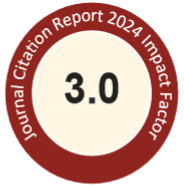Abstract
Methamphetamine (MA) is a drug that is widely used in many parts of the world. It has multiple neurobiological impacts on the nervous system; some of which are transitory and some longer lasting. MA activates the reward system of the brain and produces effects that are highly reinforcing, which can lead to abuse and dependence. Routes of administration that produce rapid onset of the drug effects (i.e., smoking and injection) are likely to lead to more rapid addiction and more medical and psychiatric effects. The medical effects of MA use are extensive, and chronic use of MA can produce significant neurological damage as well as damage to cardiovascular, pulmonary, and other organ systems. Both acute and chronic MA use can lead to extreme paranoia, anxiety, and depression, and following discontinuation of MA use, cognitive deficits, and anhedonia can persist for several months. No effective pharmacotherapies have been developed for MA dependence, although this is an area of active research. Several behavioral treatments have been shown to reduce MA use, but better treatments are needed. The research agenda for MA is substantial, with development of effective pharmacotherapies as one of the most important priorities. Copyright © 2013, Food and Drug Administration, Taiwan.
ScienceDirect Link
Recommended Citation
Rawson, R.A.
(2013)
"Current research on the epidemiology, medical and psychiatric effects, and treatment of methamphetamine use,"
Journal of Food and Drug Analysis: Vol. 21
:
Iss.
4
, Article 36.
Available at: https://doi.org/10.1016/j.jfda.2013.09.039
Creative Commons License

This work is licensed under a Creative Commons Attribution-Noncommercial-No Derivative Works 4.0 License.
Fulltext URL
https://www.sciencedirect.com/science/article/pii/S1021949813001038/pdfft?md5=95680a1f792f6322beacf5864d4cbc7d&pid=1-s2.0-S1021949813001038-main.pdf
Included in
Food Science Commons, Medicinal Chemistry and Pharmaceutics Commons, Pharmacology Commons, Toxicology Commons

